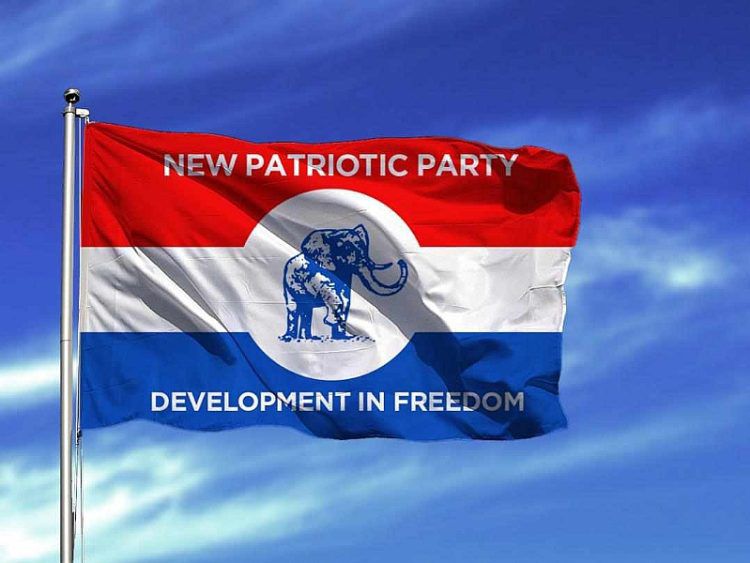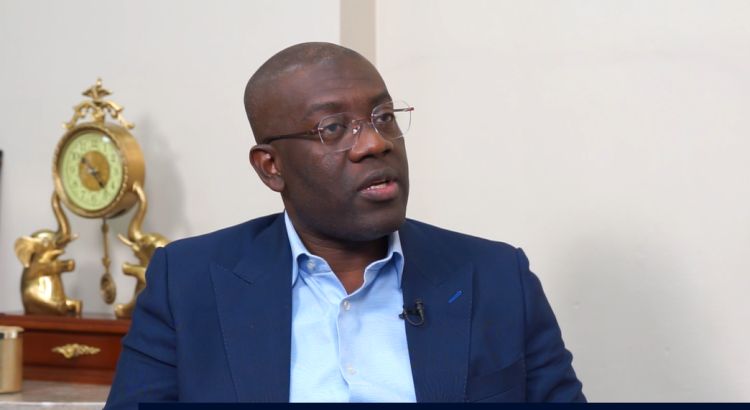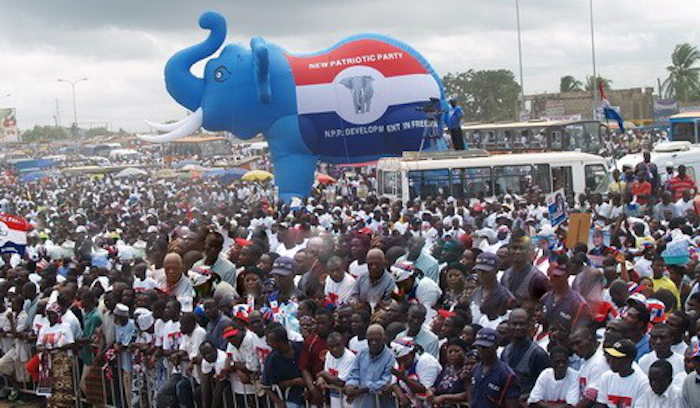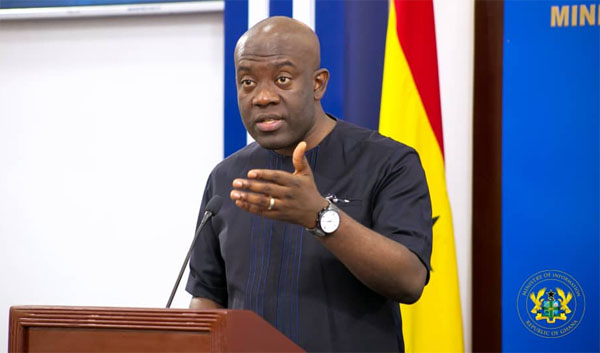The Member of Parliament for Ofoase Ayirebi, Kojo Oppong Nkrumah, has called on presidential hopefuls within the New Patriotic Party (NPP) to focus their energies on rebuilding party unity and public trust rather than engaging in personal attacks and factional rivalries ahead of the next national elections.
Speaking to the media on Tuesday, October 28, the former Information Minister cautioned that intensifying tensions among aspirants could weaken the NPP’s chances of presenting a united front for the 2028 general elections.
“Tone Down the Heat,” Oppong Nkrumah Advises
Mr. Oppong Nkrumah revealed that senior figures within the party are quietly engaging the various campaign teams to ease tensions and discourage divisive rhetoric.
“There’s a strong effort behind the scenes to talk to the different camps to tone down the unnecessary heat, attacks, and allegations,” he said. “We must focus instead on what each aspirant can contribute toward rebuilding the NPP and better serving Ghanaians when we next get the opportunity to govern.”
He added that if the party prioritises reconciliation and teamwork, it will be much easier to regroup and re-energise after the upcoming January 31 internal elections.
Political observers have noted growing public spats among some NPP aspirants and their supporters in recent weeks, with debates over leadership, campaign messaging, and the party’s post-2024 performance generating heated exchanges on social media and in the press.

The NPP, currently in opposition following its 2024 electoral loss, is preparing to elect a new presidential candidate to lead the party into the 2028 polls. The process has already attracted significant public interest, with several prominent figures positioning themselves as potential successors to the outgoing leadership.
Analysts warn that open hostilities between factions could deepen internal divisions and erode public confidence in the party’s readiness to return to government. Similar tensions were observed in the lead-up to the 2007 and 2014 NPP primaries, both of which required extensive reconciliation efforts afterward to maintain party cohesion.
By appealing for restraint, Oppong Nkrumah’s remarks highlight growing awareness among senior members that unity and image management will be critical if the NPP hopes to regain momentum and effectively challenge the incumbent administration in 2028.
Mr. Oppong Nkrumah also addressed claims that some aspirants were dissatisfied with a recent meeting between former President Nana Addo Dankwa Akufo-Addo and NPP presidential hopefuls.
The meeting, held in Accra earlier this month, was part of ongoing efforts to promote issue-based campaigning and maintain civility within the race. Some reports suggested that not all aspirants were content with the discussions — a claim Oppong Nkrumah dismissed.
“You will see spoilers trying to throw in misinformation here and there,” he said, noting that such narratives are often intended to create friction. “But the truth is that many of the aspirants are aligned on one key principle — that the NPP must remain disciplined and focused if it is to recover politically.”

The Ofoase Ayirebi MP’s comments underscore a broader theme in Ghana’s political landscape: the importance of internal harmony within major parties. Both the NPP and the opposition National Democratic Congress (NDC) have experienced intra-party disputes that affected their electoral performances.
Political analyst Dr. Kwame Asah-Asante of the University of Ghana has often observed that leadership transitions in Ghanaian parties tend to expose underlying tensions between generational and ideological blocs. “Parties that manage internal democracy effectively are those that communicate unity and purpose to the electorate,” he told The Ghanaian Times earlier this year.
For the NPP, which has prided itself on stability and governance experience, maintaining discipline among its ranks is seen as crucial to rebuilding public trust after years of economic challenges and voter fatigue.
Following the NPP’s loss in 2024 — largely attributed to economic hardships, inflationary pressures, and voter apathy — many within the party have called for introspection rather than blame. The leadership has since launched internal reviews and grassroots engagement programmes to reconnect with its base.
Oppong Nkrumah’s appeal aligns with these efforts, urging aspirants to adopt a solutions-oriented campaign rather than a combative one. “If we focus more on what we can do to improve the party and less on personal attacks, we can rebuild stronger and faster,” he noted.

The tone of the NPP’s internal contest could have ripple effects across Ghana’s political scene. As one of the country’s two dominant parties, the NPP’s stability often influences broader national discourse and investor perceptions of political predictability.
Analysts argue that a civil, forward-looking internal campaign would help strengthen Ghana’s democratic culture, demonstrating maturity in leadership transitions and party governance.
As preparations continue for the NPP’s presidential primaries, Oppong Nkrumah’s call serves as both a warning and a roadmap — that internal divisions, if left unchecked, could undermine future electoral prospects. His message echoes a wider sentiment within Ghanaian politics: that parties must balance ambition with discipline to earn public confidence.
For the NPP, the coming months will test whether its aspirants can rise above internal competition to project a unified, reform-minded party capable of convincing Ghanaians it is ready to govern again.
Read also: Oppong Nkrumah Warns Ghana’s GH¢60bn Liquidity Withdrawal Could Slow Growth and Jobs

